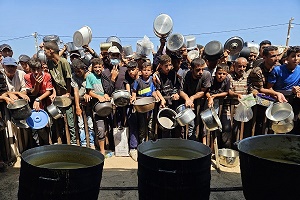President Bola Tinubu has reaffirmed his administration’s commitment to restoring peace in the troubled northern regions of Nigeria, enabling displaced farmers to return to their farmlands and increase food production. The President made the remarks on Tuesday during his 2024 Independence Day Anniversary Broadcast, marking Nigeria’s 64th Independence Day.
“We expect to see a leap in food production and a downward spiral in food costs. I promise you, we shall not falter on this,” Tinubu stated, highlighting the government’s efforts to address the security challenges that have hindered agricultural activities.
Tinubu emphasized that his administration is making significant progress in the fight against terrorism, banditry, and kidnapping, with a focus on neutralizing the threats posed by Boko Haram, bandits, and other violent extremists.
“Our government has eliminated Boko Haram and bandit commanders faster than ever,” the President said, citing the elimination of over 300 commanders across the Northeast and Northwest regions within the past year. He expressed optimism that these successes would allow displaced farmers to return to their lands, contributing to a substantial increase in food production.
“We have restored peace to hundreds of communities in the North, and thousands of our people have been able to return home. It is an unfinished business, which our security agencies are committed to ending as quickly as possible,” Tinubu added.
Addressing Food Inflation
Nigeria is currently grappling with one of its worst economic crises in recent memory, marked by soaring inflation and rising living costs. The situation has been exacerbated by the government’s removal of the petrol subsidy and the unification of the foreign exchange windows in May 2023.
In August 2024, inflation surged to 32.15%, with food inflation reaching 37.52%, according to data from the National Bureau of Statistics (NBS). The rise in food inflation has been attributed to sharp increases in the prices of essential commodities such as bread, maize, grains, yams, and cooking oils.
While the Tinubu administration and state governors have introduced palliative measures to mitigate the effects of the economic downturn, many Nigerians continue to face severe hardship due to the skyrocketing cost of food and other basic necessities.










